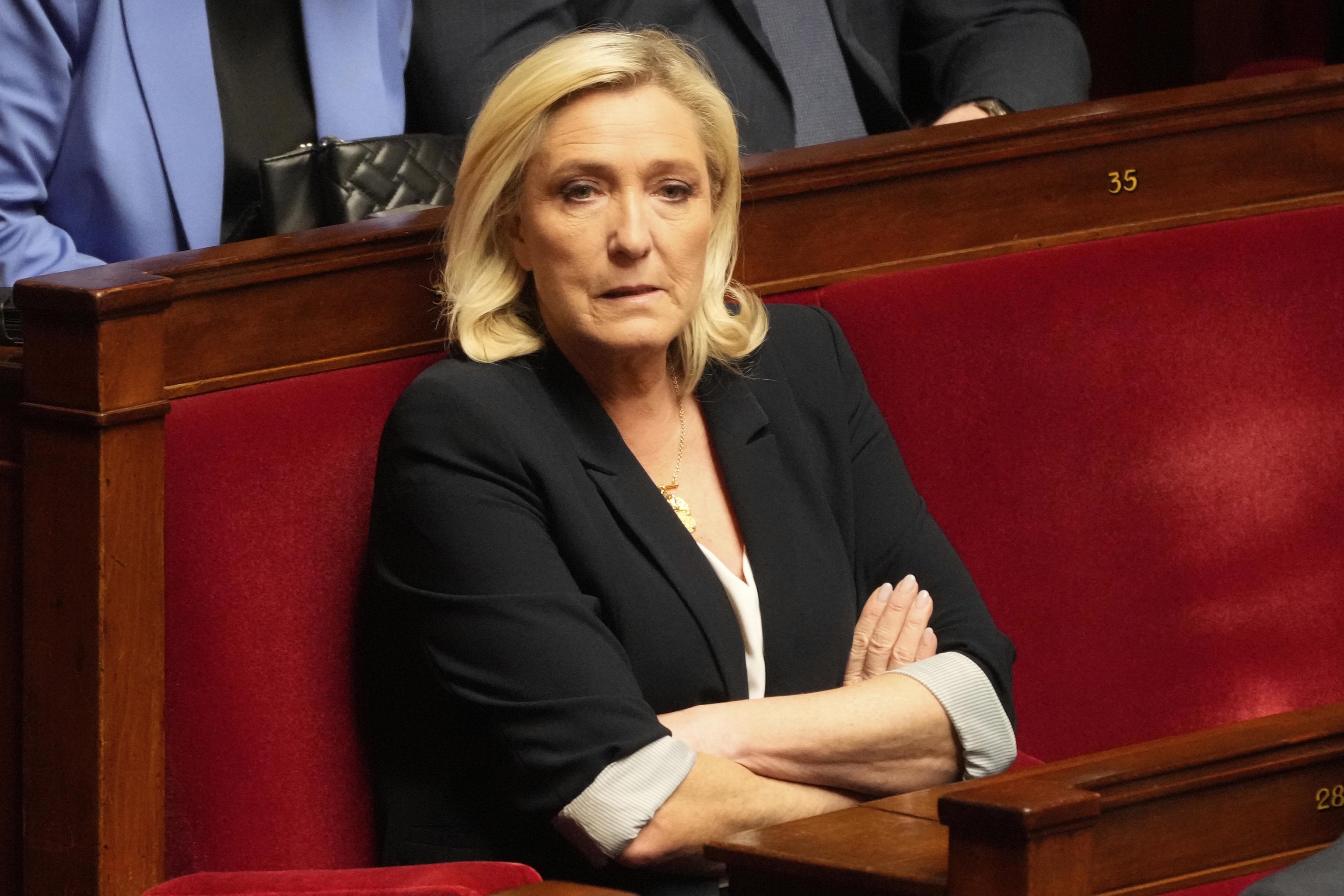The General Directorate of Finance of the European Parliament has accused the Identity and Democracy (ID) group, which brought together a dozen far-right parties between 2019 and 2024, of illegally distributing over 700,000 euros in donations to various associations, in violation of the current rules for the use of funds initially intended for the operation of parliamentary groups.
The newspaper Le Monde reveals the contents of a confidential report from the European Parliament that directly implicates the National Rally (RN), the party of Marine Le Pen, who was sentenced last March to four years in prison and five years of disqualification from public office for embezzlement of European Parliament funds (pending appeal).
Although Le Pen was no longer a Member of the European Parliament during the period covered by the new revelations (she became a member of the National Assembly in 2017), the report implicates the "elected officials" of her party, including her successor Jordan Bardella, who took over as the lead candidate for RN in the European Parliament in 2019.
Bardella has not publicly responded to the new accusations. The former Secretary-General of ID, Philip Claeys, however, denied any "irregularities" and defended his group's actions - in their dealings with the European Parliament - as part of their "political and operational autonomy." The legal wrangling is very similar to that used by Marine Le Pen and 23 other members of her party who were convicted of using European funds to pay assistants who did not work directly for them but for the party, then known as the National Front, between 2004 and 2016.
According to the confidential report revealed by Le Monde, the elected members of Identity and Democracy systematically diverted funds from the budget allocated by the European Parliament to each political group (between 6 and 7 million euros annually). Although parliamentary regulations allow for transferring up to 5% of the budget to "external organizations," it specifies that these organizations must be "related to the political activities of the European Union."
However, the European Parliament's report highlights that many of the associations that received money through this channel "operate strictly at a local or regional level," and their activities "are not related to those of the ID group."
Among the benefiting associations are groups like Cats 64, dedicated to the sterilization of stray cats in the French town of Pau, which received a 1,500 euro check signed by an RN MEP. The association Lévriers 74, for the protection of Spanish greyhounds, received another check for 4,150 euros. The Franco-Russian cultural association Teremok, chaired by the wife of a regional RN councilor, received 1,000 euros to fund a translation contest in Meurthe-et-Moselle.
The report details how dozens of French, Italian, Belgian, and German associations, with numerous connections between them, benefited for five years from this unusual funding method of "asking for money from an MEP".
SOS Leben, an association affiliated with the Alternative for Germany party, received a 3,500 euro check for their anti-abortion campaign. In Belgium, the Catholic student club KVHV (of which the young president was MEP Tom Vandendriessche from the Flemish nationalist party Vlaams Belang) received a generous donation of 30,140 euros. In Italy, the animal shelter of Rosaria Izzo, a former regional executive of the League, received 1,100 euros. A more modest 200 euros was the check received by the karate club where Gerhard Maier, close to the Freedom Party of Austria, taught.
In France, the firefighters' association of La Celle-Saint-Cloud, the hometown of several RN elected officials, received a donation of 3,550 euros. The Catholic association SOS Calvaire received 1,000 euros through this channel for the restoration of a parish in Maine-et-Loire, and the National Society for Sea Rescue in Sète, linked to MEP France Jamet, accepted a donation of a thousand euros.
According to Le Monde, this type of donation that borders on "clientelism" and skirts legality has been a practice limited to far-right groups and has not been used by left-wing, center, and moderate right-wing groups in the European Parliament.
